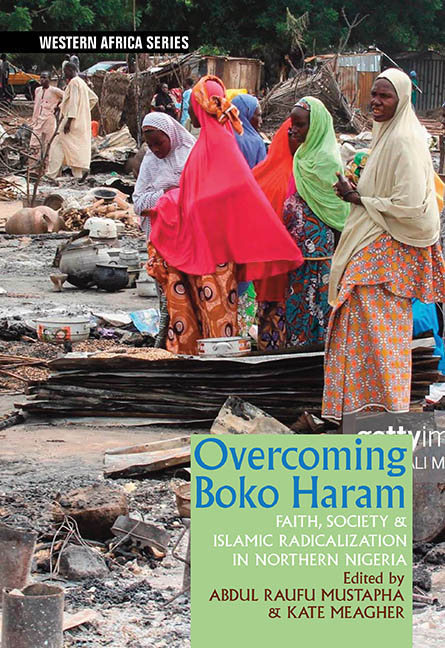Book contents
Foreword
Published online by Cambridge University Press: 21 March 2020
Summary
Writing a foreword to this collection of well-researched articles on Islamic radicalization in northern Nigeria was always going to be a difficult task. The range of authors, subjects and viewpoints is such that any attempt to capture a single dominant theme on which there is consensus would be presumptuous. And this is as it should be, given the complexity of this subject and the all-too-frequent tendency to over-simplify the phenomenon of Islamic radicalization.
Perhaps the best way to begin is, by way of tribute, to recollect my own relationship with my friend Professor Mustapha who passed away in 2017. Using our relationship as an entry point may help clarify my own approach to understanding radicalization. My admission to study Economics in the faculty of Arts and Social Sciences (FASS) at Ahmadu Bello University brought me into contact with Rauf and a few of his colleagues among the post-graduate students and graduate assistants, including Alkasum Abba, Sule Bello, Jibrin Ibrahim, Ayesha Imam, Altine Jafar, Sanusi Abubakar and George Kwanashie. Although Economics was considered the department of ‘reactionaries’ in the faculty, I spent most of my time with friends in political science, sociology and history. I soon found myself among a group of young undergraduates who took Rauf and his comrades as role models.
After my postgraduate Studies at ABU, I joined the academic staff as a graduate Assistant in the Economics department in the summer of 1983. Rauf and I briefly shared the same path as young academics committed to rigorous political economy and a materialist conception of history, but our paths diverged when Rauf went on to Oxford for his doctorate, while I left academia completely for a life in the banking industry. In 1991, I took a long break from banking to pursue a long-term interest in Islamic Studies at the University of Africa in Sudan, where I first studied Arabic before obtaining a second BA in Sharia and Islamic Studies in 1997. I returned to my banking career and ended up being appointed Governor of the Central Bank of Nigeria in 2009.
My background in political economy and Islamic law has shaped my reading of Muslim society.
- Type
- Chapter
- Information
- Overcoming Boko HaramFaith, Society and Islamic Radicalization in Northern Nigeria, pp. xx - xxviPublisher: Boydell & BrewerPrint publication year: 2020



